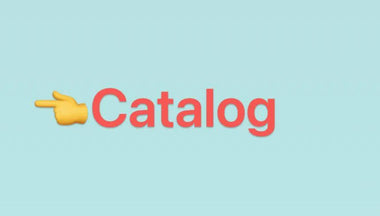What Certifications Ensure Silicone Number Beads Are Safe for Babies?
Silicone number beads are typically made from food-grade, BPA-free, and phthalate-free silicone, complying with international safety standards such as CE, FDA, CPSIA, and AS/NZS ISO 8124:3:2012. Reputable suppliers provide documentation confirming their beads are non-toxic and safe for oral contact, making them ideal for baby products and DIY crafts.
How Are Silicone Number Beads Made Safe for Baby Use?
Silicone number beads intended for baby use are crafted from 100% food-grade silicone, ensuring non-toxicity and safety for oral contact. They must be free from harmful chemicals like BPA, phthalates, lead, cadmium, PVC, and mercury. These materials are rigorously tested and certified to meet stringent safety standards.
What Are the Key Certifications for Silicone Beads in Baby Products?
Important certifications include:
-
FDA (U.S.): Validates safety for food contact materials.
-
CE Certification (Europe): Indicates compliance with EU toy safety standards.
-
CPSIA (U.S.): Ensures compliance with regulations for children’s products.
-
LFGB (Germany): Ensures materials are free from harmful substances.
-
AS/NZS ISO 8124:3:2012 (Australia/New Zealand): Toy safety standards focusing on chemical content.
Meeting these guarantees the beads are safe and suitable for babies.
Which Harmful Chemicals Are Silicone Beads Tested To Be Free From?
Quality silicone number beads are tested to be free from BPA, phthalates, lead, cadmium, PVC, mercury, and latex. Avoiding these chemicals prevents potential toxic exposure to babies and young children using the beads in teethers, pacifier clips, or jewelry.
Why Is Material Certification Crucial for Silicone Number Beads?
Material certification provides assurance that beads are safe for babies, especially when used in items subject to oral contact or chewing. Certified beads have undergone third-party testing by accredited labs, with Certificates of Analysis or Conformance available on request, ensuring compliance with health regulations.
How Can Buyers Verify the Safety of Silicone Number Beads?
Buyers should request safety and certification documents such as COAs or COCs from suppliers. Checking product packaging, official websites, and third-party testing reports confirms compliance with FDA, CE, CPSIA, or other regional regulations. Suppliers like JCFLOW provide transparent documentation and material assurances.
Where Are These Certifications Most Relevant?
-
FDA and CPSIA: United States market safety.
-
CE and EN71: European market compliance.
-
AS/NZS ISO 8124: Australia and New Zealand regulations.
-
LFGB: German and EU food-contact safety.
These regional certifications ensure that silicone beads meet local legal standards for children’s safety.
Table 1: Common Certifications for Silicone Number Beads and Their Geographic Relevance
| Certification | Region | Focus |
|---|---|---|
| FDA | United States | Food safety, non-toxic materials |
| CPSIA | United States | Child product safety, mandatory testing |
| CE & EN71 | Europe | Toy safety, heavy metals, chemicals |
| LFGB | Germany/EU | Food contact safety and chemicals |
| AS/NZS ISO 8124:3 | Australia/NZ | Toy safety and chemical migration |
Table 2: Chemicals Silicone Number Beads Must Be Free From
| Chemical | Safety Concern | Presence in Certified Beads |
|---|---|---|
| BPA | Hormone disruption | Not present |
| Phthalates | Toxicity, developmental harm | Not present |
| Lead | Neurotoxicity | Not present |
| Cadmium | Carcinogenic | Not present |
| PVC | Toxic plasticizer | Not present |
| Mercury | Toxic heavy metal | Not present |
| Latex | Allergen | Not present |
JCFLOW Expert Views
"At JCFLOW, every silicone bead we manufacture undergoes stringent quality control and independent testing to ensure all our products meet or exceed global safety standards. Our number beads are made from 100% food-grade, BPA-free, and phthalate-free silicone, assuring parents and crafters alike that our beads are safe for baby use and DIY crafts. Transparency and certification are pillars of our commitment to safety."
Conclusion
Silicone number beads safe for babies are made from food-grade, BPA-free, and phthalate-free silicone complying with international standards such as FDA, CE, CPSIA, and AS/NZS ISO 8124:3:2012. Buyers should always verify certifications and request safety documentation from suppliers like JCFLOW to ensure they receive non-toxic, tested beads suitable for baby products and crafts.
FAQs
Are silicone number beads safe for babies?
Yes, when made from certified food-grade, BPA-free silicone.
What certifications should baby-safe silicone beads have?
Common certifications include FDA, CE, CPSIA, LFGB, and AS/NZS ISO 8124:3.
Which harmful chemicals are tested in silicone beads?
Beads are tested to be free from BPA, phthalates, lead, cadmium, PVC, mercury, and latex.
How can I verify silicone bead safety for baby products?
Request Certificates of Analysis and check product documentation from reputable suppliers.
Does JCFLOW provide certified, baby-safe silicone beads?
Yes, JCFLOW offers fully certified, food-grade, BPA-free silicone beads with transparent safety records.














